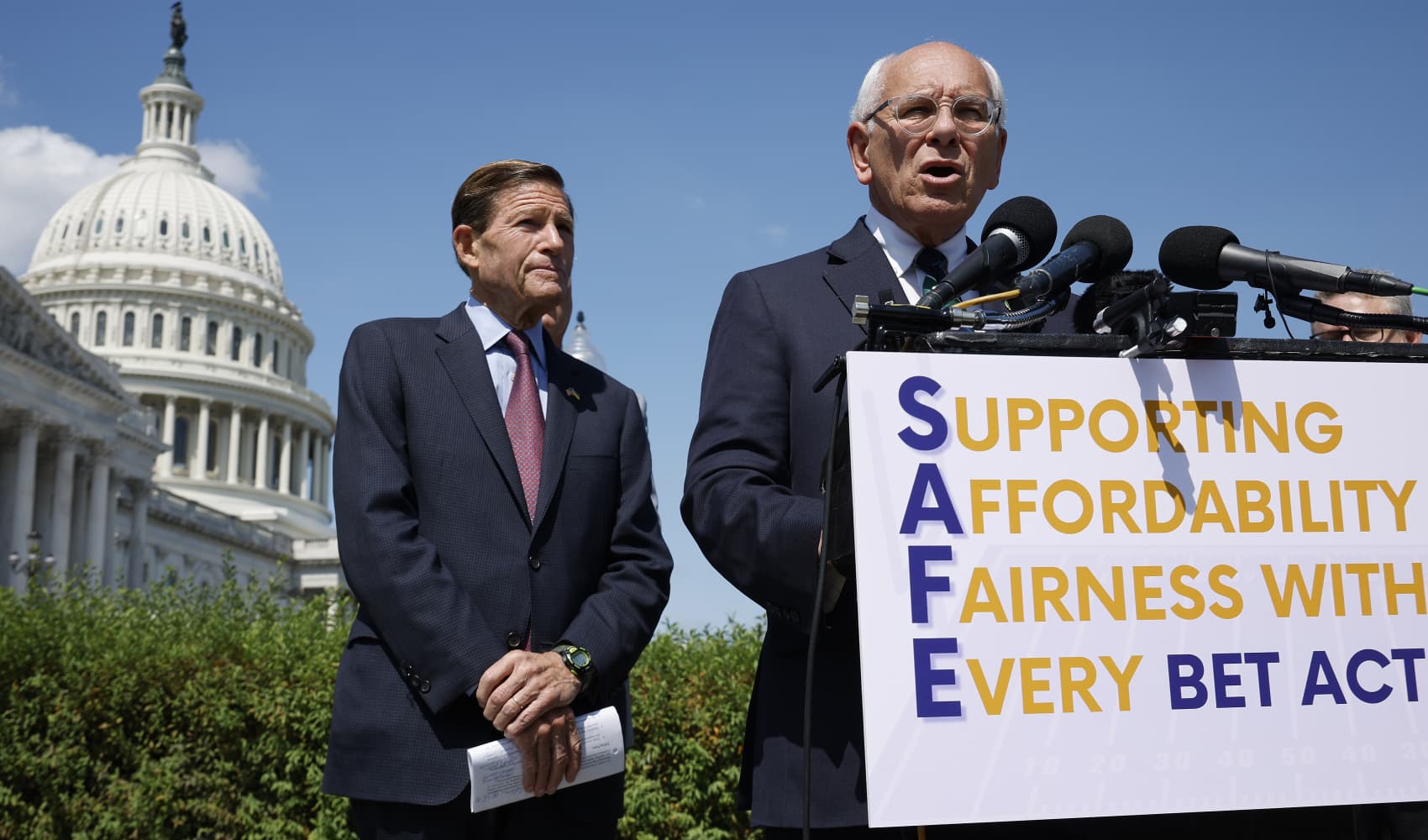
This report is from today's CNBC Daily Open, our international markets newsletter. CNBC Daily Open brings investors up to speed on everything they need to know, no matter where they are. Like what you see? You can subscribe here.
What you need to know today
Dow record, tech stocks lag
The Dow Jones Industrial Average closed at a record high as investors rotated out of tech stocks. The 30-stock index rose 0.16%, while the S&P 500 and the Nasdaq Composite dipped 0.32% and 0.85%, respectively. Nvidia dived 2.25% ahead of its earnings report on Wednesday. Other chip stocks Broadcom and Micron fell 4% and 3.8%, respectively. Meanwhile, the yield on the 10-year Treasury rose slightly higher after Federal Reserve Chair Jerome Powell signalled plans to cut rates.
Apple new CFO
Apple announced that Chief Financial Officer Luca Maestri will step down on Jan. 1, to be succeeded by long-time Apple insider Kevan Parekh. Maestri, who has been CFO since 2014, will continue to lead IT, security and real estate development teams. Parekh, currently VP of financial planning and analysis, has been a key member of Apple's finance leadership. Under Maestri's tenure, Apple's revenue more than doubled and the company's stock surged over 800%. Separately, the company plans to host a press conference on Sept. 9 at its headquarters, where it is expected to unveil new iPhones and Apple Watch models.
Get top local stories in Connecticut delivered to you every morning. Sign up for NBC Connecticut's News Headlines newsletter.
Oil soars
U.S. crude oil prices rose 3.5% due to production halts in Libya and escalating tensions between Israel and Hezbollah. Libya's eastern government shutdown oil production and exports amid a political dispute over who should run the central bank, potentially impacting global markets. Simultaneously, Israel and Hezbollah exchanged heavy fire. The ongoing Middle East tensions, including recent assassinations of militant leaders, have kept the region on edge.
Staying power
Exxon Mobil predicts oil and natural gas will account for over 50% of global energy use by 2050, despite efforts to reduce fossil fuel reliance. Oil demand will plateau but stay above 100 million barrels per day through to 2050. This persistent demand challenges global climate goals of achieving net-zero carbon emissions by 2050. While gasoline demand is projected to decline, oil will continue to be crucial for manufacturing, chemical production, and heavy transportation.
'Orange pilled'
Former President Donald Trump's newfound support for bitcoin appears to have been influenced by a small group of cryptocurrency advocates, particularly a trio of individuals from Puerto Rico. Along with others in Trump's inner circle, they worked behind the scenes to change his perspective on bitcoin, a process referred to in the bitcoin community as being "orange-pilled." This term draws from the "red pill" concept in the movie "The Matrix," symbolizing a conversion to bitcoin ideology. Trump's support appears linked to potential financial backing from the crypto community. CNBC's MacKenzie Sigalos has the back story.
Money Report
[PRO] Nvidia hedge
Bank of America is warning that "investors may be underpricing the risk of a disappointment" from Nvidia's earnings, which could lead to a broader market sell-off. This is what the investment bank suggests to hedge against the risk.
The bottom line
Boeing's space ambitions may be on the brink as speculation grows that the aerospace giant could sell off its struggling space business. This comes in the wake of problems with its Starliner spacecraft, which has left two astronauts stranded on the International Space Station.
According to Reuters, Boeing and Lockheed Martin are already in talks to sell their rocket-launching joint venture, United Launch Alliance, to Sierra Space for an estimated $2 billion to $3 billion. The potential sale comes at a time when Boeing's dominance in space exploration is increasingly challenged by younger, more nimble competitors.
Once the backbone of NASA's Apollo missions, Boeing now finds itself overshadowed by Elon Musk's SpaceX, which has rapidly become the go-to partner for manned space missions. Boeing isn't alone in facing these challenges. Like Intel, which has fallen behind in the AI and smartphone markets to rivals such as Nvidia, Broadcom and AMD, Boeing is grappling with the reality of being outpaced in an industry it once led.
"This incident could negatively affect Boeing's reputation with NASA and it's unclear if or when the company will have another opportunity to bring astronauts to Space," Bank of America analyst Ronald Epstein said in a note. "We would not be surprised if Boeing were to divest the manned space flight business."
Epstein's critique didn't stop there. He pointed out gaps in Boeing's technical workforce, suggesting that the company may have strayed from its engineering roots — a potential factor in its recent setbacks.
These challenges are yet another issue for Boeing's new CEO Robert Ortberg who is tasked with steering the company through numerous safety issues on its commercial planes.
Boeing's shares dipped 0.85% to $173, though Epstein maintains a 12-month price target of $200, which represents a 15% upside from Monday's close.
As for the broader market, the Dow closed at a record high. And although there is a rotation out of tech stocks, the weight of the sector held down the S&P 500.
While acknowledging the volatility that has recently hit tech stocks, UBS maintains that the long-term growth potential of AI will support the broader market.
"We see room for U.S. equities to rise further in a constructive environment driven by Fed rate cuts, the growth story around artificial intelligence and healthy earnings growth," UBS wrote in a Monday note, reaffirming its year-end target for the S&P 500 at 5,900, which would represent a 5% increase from current levels.






